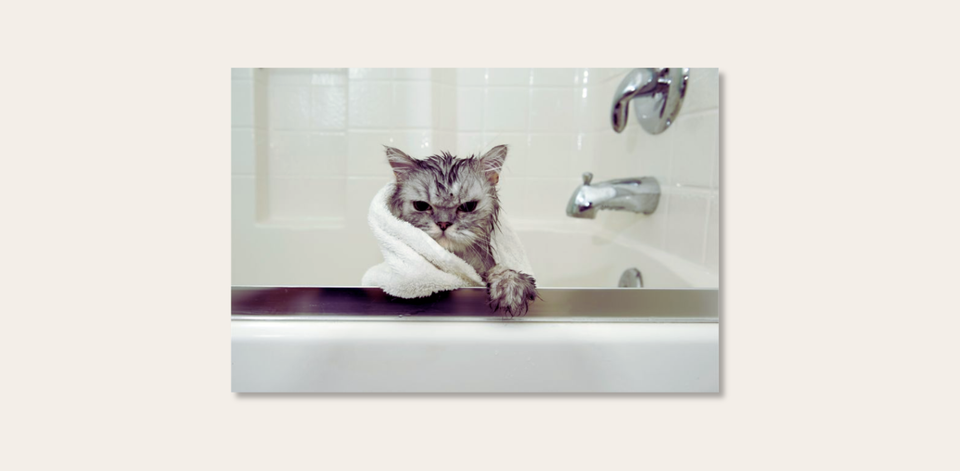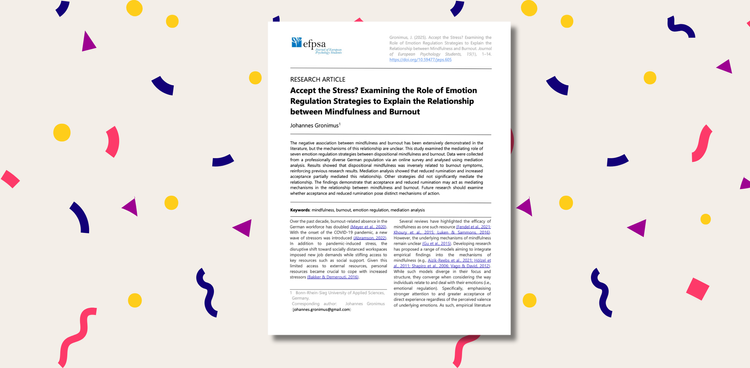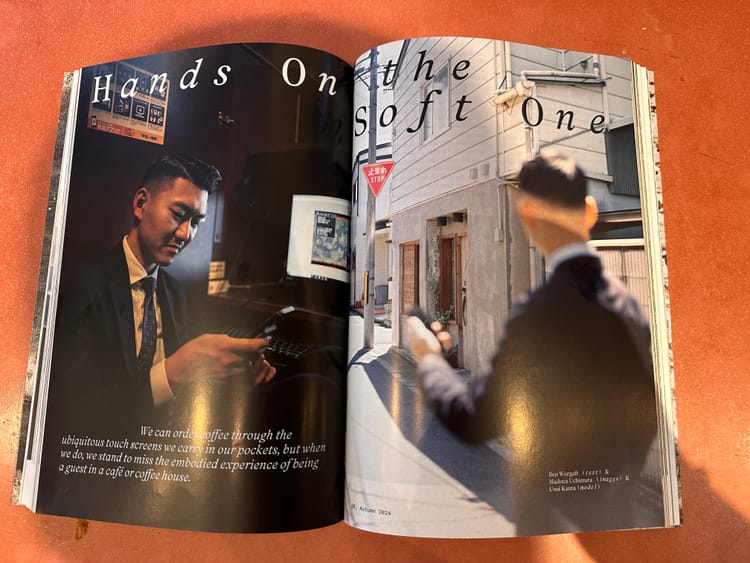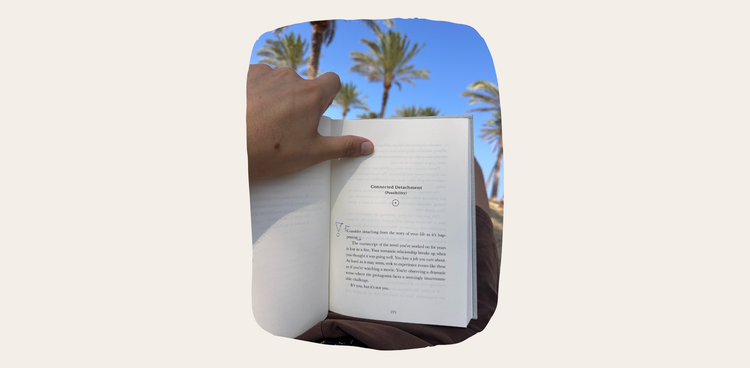On Bathing a Cat

Okay, hear me out. It's been a minute, and I've got lot to process from the last few months. But we'll start with a funky little image. In January, I journaled about a rather odd analogy that'd come to my mind: The Bathing Cat. Stay with me, I promise there's something here:
🐈️ Cats hate Baths.
Everyone knows that, no matter if they have a cat or not. For all we know, they're having a very unpleasant time when they're bathed, yet cat owners continue to wash their precious little darlings against their will. Is this animal abuse? Well, I'm no expert, but my best guess is "No" - we discard their discomfort simply on the grounds of their incomprehension. Their irritation is a result of their false evaluation of the situation, so they'll have to stick this one out - they simply don't know what's best for them.
Even with small children, we apply the same logic, disregarding their momentary comfort to first wash and later educate them. Or take the dread a child might feel after being refused the third of piece of cake: "They might not like it now, but this is simply because they don't know enough yet to accurately judge the situation" is the implicit rationale.
The thing is: Often times, this is justified. When my Mum used to rigidly limit my video game time to 1h per day, 15y/o me was convinced this was a terrible injustice! Everyone else got to play more and I didn't - what a gross imbalance in the fairness of the universe. Only today, I sit here grateful for her rigidity because it made me pester my friends to come outside and do silly teenager stuff with me instead. I simply didn't know what was best for me.
Yet at some rather arbitrary point, likely around the ominous start of "adulthood", we simply decide that this doesn't apply to us anymore. Out with the possibility that we could still have gaps in our understanding - When we don't like a situation, we consider that conclusive evidence for the wrongness of this situation. "It should't be like this!", we think, convinced that we know what's best for us (that being, of course, not this). Now, are we right in our conviction?
Well, if my personal experience is in any way representative, I don't believe so. Of course, I could also be extraordinarily stupid in my appraisal of feeling tones, in which case I hope you simply get a smirk out of the following examples:
🤨 Something's Wrong, I can feel it.
The first type is honestly the most hilarious when I see it: I call it "Causes and Conditions". It's when I feel like there's something wrong with the world (or with myself) for something that is so clearly the perfect result of its causes and conditions.
For example, I tend to get frustrated with myself when I get tired halfway through the day - which mainly happens during times where I don't get enough sleep. The evaluation: There's something wrong here with the fact that I'm tired. I don't like it - or in other words: It shouldn't be like this. Only there'd be something wrong here if I wasn't! Nature tends not to forget its own laws, and a lack of sleep shows up in a human in form of a signal we call "feeling tired". It should indeed be like this, and my feeling of friction is clearly misguided.
Or for an even more placative example, take the last week. I moved to a new country the same day I started my Master's in Neuropsychology. A few days in, I felt a little overwhelmed with the depth & volume of background knowledge that I had to learn by myself to even start understanding the course content - all while trying to juggle the admin of moving countries, of course. And I felt displeased, wrong for it. The ridiculousness is rather obvious, right?
This sort of feeling is simply the accurate response to the situation, the clear result of its causes and conditions. What's more, it's a clear result of my conscious choices: I chose to study Neuroscience because I wanted to learn more about it, and here I sit annoyed at the fact that have to learn Neuroscience? The alternative - starting the Master's and recognising that I know all of this already - would be my worst nightmare, a complete waste of time!
So to no one's surprise, getting back into study after two years without Uni takes a bit of adjusting. There's nothing wrong about it, and everything right about it. It's the perfect result of its causes and conditions, and my "It should not be like this" evaluation is plain inaccurate. I don’t even have to be omniscient to understand this - it’s clear as day given what I know today.
Luckily, I get to embrace it as a part of the life I chose the moment I recognise this. As soon as I open my arms to this experience, which just so happens to encompass a little overwhelm right now, my bathing-cat-ness dissipates. I get to excitedly dive head-first into studying Neuroscience, which was the whole point in the first place.
These sorts of moments are so special because the causality is so obvious, and therefore the outcome is easily predictable. Sleep more and feel less tired. Take time to adjust and feel adjusted. Problem solved, everything's in order, arms wide open - if I only remember what I already know and recognise that my evaluation was faulty. Cool stuff. Only problem: this luxury of clear understanding is pretty damn rare.
😏 Overconfidence
Just about all of the time, life isn't quite as clear, causality isn't perfectly obvious but infinitely complex and the future uncertain as ever. You get hit with an event without any comprehension of its causality (read "WHY???"), and you have no clue about its implications for the future. Of course, this doesn't keep the mind (the left brain hemisphere specifically, but that's a whole different essay coming soon) from making a decisive judgement on the matter. THIS IS BAD.
One of the hallmark features of our minds is the ability to make judgements without having full information, which is helpful in a world so complex you never get full information. However, we pay for this ability by sacrificing calibration of confidence. An often-forgotten part of metacognition (the awareness & regulation of one's mental movements), this is the process of adjusting one's confidence for all that we don't know:
In an ideal world, we'd feel less certain about our judgement on what's "best for us" (as having complete information here is basically impossible) than about the result of 14+7. In reality though, the two aren't too far apart. I've already done a deep dive on the research behind this here, but the upshot is this: The brain doesn't correct for what it doesn't know. No matter how shaky a judgement may be in reality, it feels beautifully certain in your mind.
Why do I bring this up? Well, let's recall the bathing cat. It experiences genuine discomfort in a situation that's actually beneficial. This suffering is real - the cat's really uncomfortable. But it's also fabricated, a direct result of the misevaluation of the situation. It's not like water actually hurts the cat, it's just that its little cat brain says water = bad, which is signalled back in the form of discomfort.
How silly of the cat. Only I catch myself doing the same thing all the time. In a world with imperfect information, I never really know what an event means. Some things I believe to be absolutely awful, get upset accordingly, yet they turn out to be complete non-events: gone & forgotten faster than they came. Some things I believe to be absolutely catastrophic, wallow in the unfairness of life for a hot minute, and then they turn out to be the best thing that ever happened to me. And of course, some things I consider dreadful and they turn out dreadful.
Point being: I have no certainty. Something happens to me, and in the absence of a complete understanding of the universe and its workings, the reality remains that I simply don't know what's best for me. Like the cat and the child, I'm not done learning about the world. Only my non-confidence-calibrated brain is convinced otherwise and I get to suffer the consequences. Like the cat, if my little human brain says "this is awful", I really feel awful, no matter the actual outcome. The suffering is real, but it's also fabricated based on my evaluation. So since there are real consequences to this process, surely I have the facts to back up my claims, right?
🤝 The Eternal Option
"You always own the option of having no opinion. There is never any need to get worked up or to trouble your soul about things you can't control. These things are not asking to be judged by you. Leave them alone.”
- Marcus Aurelius, Meditations 6.52
You know, I don't have particularly rigid opinions on what came before the universe. Big Bang, Seven Days of Creation, or some other funky thing I can't comprehend - I simply don't know enough to justify a judgement here. I just don't see any value in clinging to what would be an uninformed guess at best, so I peacefully exercise my right not to have an opinion. It's a wonderfully calm place to be, recognising my own limitations and minding my own business. Only that five minutes later, I claim to know what's best for me at all times?
It's a funky process sometimes. 99% of my days, I'm lost in thought, taking whatever judgement arises as the ultimate truth and feeling accordingly. But then every once in a while, I remember that my thoughts are not facts, and that the fundament of my current feeling tone is simply a subjective value judgement. Or, in the words of my dear friend Roman, "simply a little story I tell myself".
Of course, to make up these stories is the most natural thing in the world. To categorise (read "chop up") the continuous, spectrum-like nature of reality - for example into "good" and "bad" - and then evaluate experience based on those categories (read "put today in the 'bad' box") is arguably the main task of the left brain hemisphere, and it's an incredible feat! The point isn't that these stories are necessarily wrong - it's more that we forget they're stories that could potentially be wrong. We forget the confidence-calibration and simply default to 100% - or at least that's what it feels like.
Prof. Chris Niebauer, a cognitive psychologist that specialises in brain lateralisation (aka studying the hemispheres), poses a wonderfully worded question:
Is this a belief you have, or do you believe it?
I hope the difference between the two has become clear by now: To have an instinctual evaluation to whatever happens - a belief or story about it - is the natural response of the categorisation machine upstairs, aiming to make sense of the world. Nothing wrong with this, as long as it is recognised as a belief and/or story. The issue arises when we start to believe it. No longer is there a) a situation, b) a best-guess evaluation and c) someone experiencing the two: As a matter of experience, the situation and the evaluation seem to merge, and we throw ourselves in with the merger for good measure. "Bad" is no longer a subjective evaluation in here, but a fixed attribute of the world out there, and the feeling tone follows accordingly.
This is the reality of the bathing cat. And quite often, it is mine too. The only difference is that the cat doesn't quite have the capacity to un-tangle this whole mess and recognise its place in it. But we do. In some rare moments of wisdom, we can leave the things out there alone. At any point, we are free to recognise the current reality and simply take it for what it is, prior to any story about it. Of course, this shouldn't be a pretence to put on the rose-tinted glasses of delusion, swing the other way and believe that this the best thing that ever happened to you - this would once again be claiming to know when you don't.
I truly mean seeing it simply as the result of the laws of nature playing themselves out. In this way, I believe that these beliefs are to be held the way a researcher holds an hypothesis: The current best guess, but fully aware that it’s simply a guess and not a truth.
Of course, on the basis of this guess I can (and I will) still feel emotional about things. Not only is this hard to avoid - I’ve argued before that it wouldn’t even be worth avoiding if it were possible, for the result would be a life of perpetual dullness. But when this initial wave has washed over you, there are two options: To cling onto this first judgement as if it were the holy gospel, or to add a little confidence correction.
Whatever has happened, there's probably no mistake here - or at least, I've never seen nature stumble and forget its own laws. "Causes and Conditions" applies here too - it’s just that I’m still figuring them out. My blessing in the meantime: The option of having no opinion. To see that right now, no one’s pointing a gun to my head demanding a conclusive evaluation of the situation. I have the liberating option of recognising my belief as just that, and then go on toward the unknown. It's a wonderfully calm place to be, recognising my own limitations and minding my own business.
Only that it's never neutral. Paradoxically, this stance of non-judgement (that should for all intents and purposes feel neutral) feels so beautifully peaceful? In a turn of events I don't quite understand, to take this step back and acknowledge my limitation feels like living with open arms again. My working theory is that in the absence of "good" and "bad", curiosity fills the space. Curiosity doesn't require a guaranteed good outcome (as would be required to put something in the "good" box) - indeed, a guaranteed outcome would kinda defeat the point of curiosity. But yeah, this is where I have no clue yet. I guess for now, I have no opinion on the mechanism :)




Comments ()